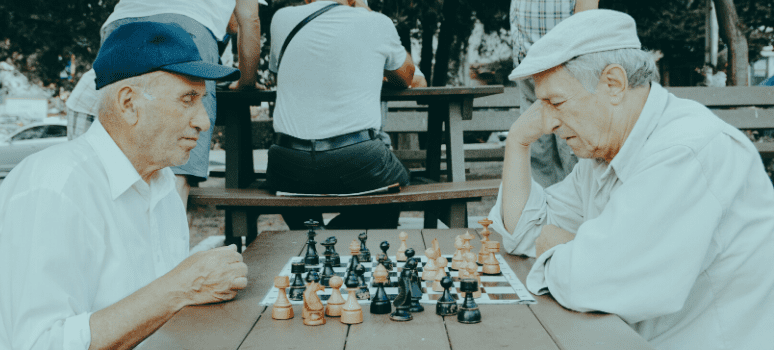
We take it for granted that ageing makes us more susceptible to disease. This is true, but once again, exercise can slow down these processes that deteriorate our health.
Older people have been one of the first groups at risk from covid-19 and in fact, in the first wave of the pandemic they were the most vulnerable to covid-19. The main killers of this virus. It is the same with influenza, for example, and this population group is called upon every year to be vaccinated.
But Why does their immune system not defend them effectively? The answer lies in the ageing processwhich affects the body's defence system. Not only does our body produce fewer lymphocytes and lower the adaptive response to external threats, but the innate response, our body's first line of defence, does not function well either.
The functions of the immune system are compromised. In particular, the adaptive response is reduced because we produce fewer antibodies and identify pathogens less well:
- the B lymphocytes are produced in the bone marrow. These cells are responsible for producing antibodies. This loss of the cells that store the memory of pathogens reduces our natural ability to respond and also that of vaccines.
- The T lymphocytes are produced in the thymus. The volume of this organ decreases from the age of 20 and by adulthood it may be reduced by up to 3 percent of its volume. The production capacity of lymphocytes is reduced as a result.
It also affects the cells of the immune system, ageing leads to an inflammatory process affecting blood and tissues. This inflammation is in itself a risk factor for disease. In English, the term inflammaging to refer to the relationship between inflammation and age.
How can we slow down the ageing process?
Genetics, previous pathologies and experiences or the lifestyle we have followed over the years are factors that determine our ageing. PBut we can do something to break the link between age and pathology.Keeping active is nowadays considered as important to health as quitting smoking.
The The type of exercise to do depends on the fitness level of the individual. We should bear in mind that it is always better to do something than nothing at all: from moving your legs and arms while sitting to walking 10,000 steps a day.
We know that exercise helps because it has been shown that people who have exercised all their lives and continue to do so into their 80s, have more T-lymphocytes and less reduction of the thymus. On the other hand, walking every day seems to maintain the level of neutrophils, the first line of defence against bacteria.
Establishing a plan of action to keep the immune system strong can start with a health check. Tests such as the TelomCHECK allow us to measure the length of telomeres and therefore whether the general reproductive capacity of our cells is in line with our age or whether we are experiencing pathological ageing.
On the other hand, treatments that are carried out in centres such as Biosalud Day Hospital - Prevent o ImmunoPlus - allow us to act on different factors and strengthen the immune system.
Over-activity of the immune system, a risk to our brain
Just as we seek to ensure that our immune system defends us properly, we must avoid over-activity of our defence cells. Beyond the "exaggerated" response that can lead to autoimmune diseases, we are studying the relationship between immune system activity and neurodegenerative diseases, more associated with age.
The The National Institute of Health in the United States is studying how the immune system may be one of the causes of the immune system. of the damage caused by neurodegenerative diseases in a process involving an alteration in a gene responsible for early brain development and a reduction in the ability to "recycle" parts of a damaged cell.
Although these studies are preliminary, they indicate how important the balanced functioning of our immune system is and how important it is for our immune system to function properly. relationship with different diseases beyond defence against external pathogens.

